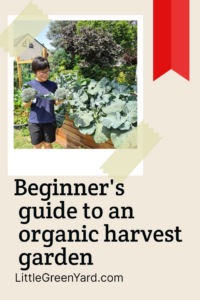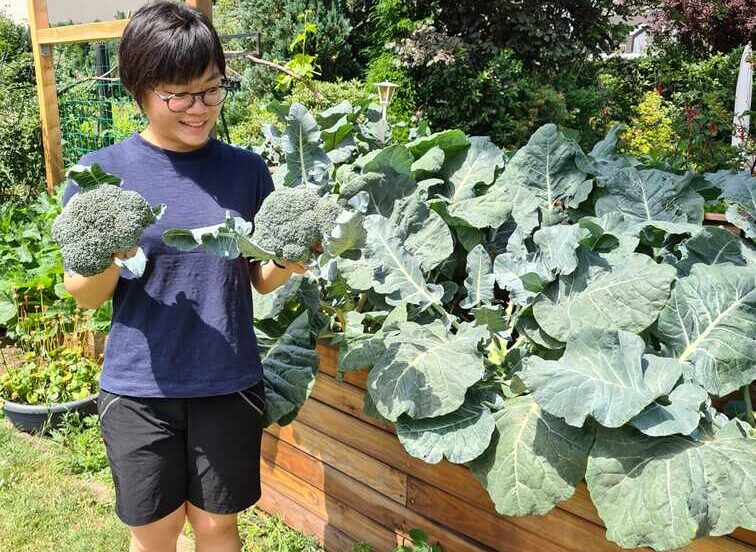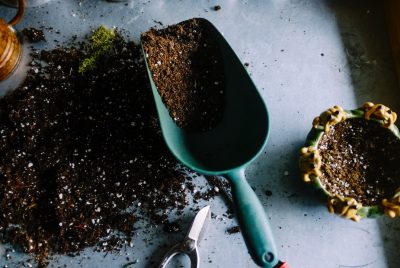Beginner’s guide to An Organic Harvest Garden
Deprecated: The PSR-0 `Requests_...` class names in the Requests library are deprecated. Switch to the PSR-4 `WpOrg\Requests\...` class names at your earliest convenience. in /home/littlegr/public_html/wp-includes/class-requests.php on line 24
Hello there! You’ve probably thought about taking the leap into starting your own organic harvest garden. It’s a rewarding and sustainable way to grow your own fruits and vegetables while contributing positively to the environment. In this beginner’s guide, I’ll walk you through the basics of organic gardening, suggest some fantastic plants to start with, and provide valuable tips to help you maintain a thriving organic garden.
I found this 4-part organic gardening series to be especially useful when I first started out:
1. Understanding the Basics of an Organic Harvest Garden
Organic gardening is all about nurturing your garden without the use of synthetic chemicals. Instead, it focuses on natural processes, promoting healthy soil, and maintaining a balanced ecosystem. To get started, you’ll need:
- Location and planning: First, it is essential to choose a right spot to start your organic garden. Look for an area that receives at least 6-8 hours of sunlight each day. Ensure good drainage to prevent waterlogging. Decide whether you want to create raised beds, traditional rows, or container gardens. Raised beds are a popular choice as they offer better control over soil quality.
- Good Soil: The foundation of organic gardening is nutrient-rich, well-draining soil. Add compost, well-rotted manure, and organic matter to improve soil fertility and structure. Mix these amendments thoroughly into the top 6-12 inches of soil. Before planting, it’s crucial to know your soil’s pH and nutrient levels. You can purchase a soil testing kit or contact your local agricultural extension office for assistance.
- Organic Seeds or Seedlings: Opt for organic seeds or seedlings to ensure you’re starting with plants that haven’t been treated with synthetic pesticides.
- Companion Planting: This technique involves planting mutually beneficial plants together to deter pests and enhance growth.
2. Choosing the Right Plants
As a beginner, it’s crucial to select plants that are relatively easy to grow organically. Here are some great options:
- Tomatoes: These are a staple in many gardens and can be grown in containers or beds.
- Herbs: Basil, mint, and rosemary are flavorful and resilient herbs for beginners.
- Lettuce: Perfect for salads, lettuce is fast-growing and doesn’t require much space.
- Zucchini: This summer squash is prolific and great for beginners.
3. Maintaining Your Organic Garden
Once your garden is up and running, it’s essential to maintain it properly. Here’s how:
- Mulching: Use organic mulch like straw or wood chips to retain moisture, suppress weeds, and regulate soil temperature.
- Watering: Water your garden consistently, aiming to keep the soil consistently moist but not waterlogged.
- Weeding: Regularly remove weeds by hand to prevent competition for nutrients.
- Natural Pest Control: Implement preventative measures like companion planting, using row covers, and providing habitat for beneficial insects to control pests naturally. Encourage beneficial insects like ladybugs and lacewings to control garden pests naturally. Regularly inspect your plants and remove any pests you find by hand. This can be an effective way to prevent infestations.
- Crop Rotation: To prevent soil depletion and disease build-up, rotate your crops yearly.
- Fertilisation: Feed your garden with compost to provide a slow-release source of nutrients. You can also make compost tea to boost plant health.
4. Suggestions for Success
Here are some additional tips to ensure your organic garden thrives:
- Patience: Gardening is a learning process. Don’t be discouraged by initial setbacks.
- Observation: Pay attention to your plants’ needs. They’ll often show signs if something isn’t right.
- Compost Tea: Use homemade compost tea as a natural fertilizer for your plants.
- Regular Pruning: Trim back overgrown branches to encourage healthy growth.
- Harvesting: Pick your fruits and vegetables when they’re ripe to enjoy the best flavors.
Future of Farming
Embarking on your organic gardening journey can be incredibly rewarding. Not only will you enjoy fresh, chemical-free produce, but you’ll also contribute positively to the environment. Remember to start with the basics, choose suitable plants that are easy to grow with successful harvest. Only then can you boost your confidence of starting and maintaining your garden with care. With patience and a bit of effort, you’ll soon be reaping the benefits of your own organic harvest.
Frequently Asked Questions (FAQs)
1. Can I use chemical fertilizers in organic gardening?
- No, organic gardening strictly avoids synthetic chemicals, including fertilizers. Instead, use natural alternatives like compost and organic matter.
2. What are the advantages of companion planting?
- Companion planting helps deter pests, improve pollination, and enhance overall plant health. For example, marigolds can deter aphids, while basil can enhance the flavor of tomatoes.
3. How often should I water my organic garden?
- The frequency of watering depends on your climate, soil type, and the specific needs of your plants. Generally, aim to keep the soil consistently moist, but not soggy.
4. Is organic gardening more time-consuming than conventional gardening?
- Organic gardening may require a bit more effort initially, but it promotes a sustainable and self-sufficient approach to gardening, which can save time and resources in the long run.
5. Can I transition my existing garden to organic gardening?
- Yes, it’s possible to transition an existing garden to organic methods by gradually reducing the use of synthetic chemicals, improving soil health, and practicing natural pest control methods.
6. What are the pros and cons of organic gardening?
I also found this great video explaining the pros and cons – it’s not always a bed of roses and smooth sailing gardening! You’ve got to be ready for pests and still be committed in trying to use minimal (if not, none) of those chemicals.





